Introduction
From the moment students enter school, their language, communication, and literacy skills underpin their success. Learning in this area impacts student achievement across the whole curriculum. The goal of SABIS® English is to develop the knowledge, understanding, and skills needed for students to become critical thinkers, readers, and writers and to communicate effectively across the curriculum.
SABIS® English courses focus on students acquiring language and literacy skills through the four major aspects of language: Reading, Writing, Listening, and Speaking, and are closely aligned to state, national, and international frameworks.
Courses are delivered through a structured series of texts that are supported by customized workbooks, teacher guides, dictionaires, and other supplementary materials that offer teachers and students strong support and suit our philosophy and distinctive teaching and assessment methods.
Allied with this are diagnostic, placement, and assessment tests that check for mastery of concepts and skills. Assessments detect and pinpoint gaps in student knowledge, allowing for timely intervention and follow-up. This assessment for learning empowers students for success, allows teachers and administrators to know how to move forward, and allows for the adaption of the delivery of content when required by learning outcomes.
The SABIS® English curriculum is customized to reflect external exams and regional requirements:
Books of the English Curriculum
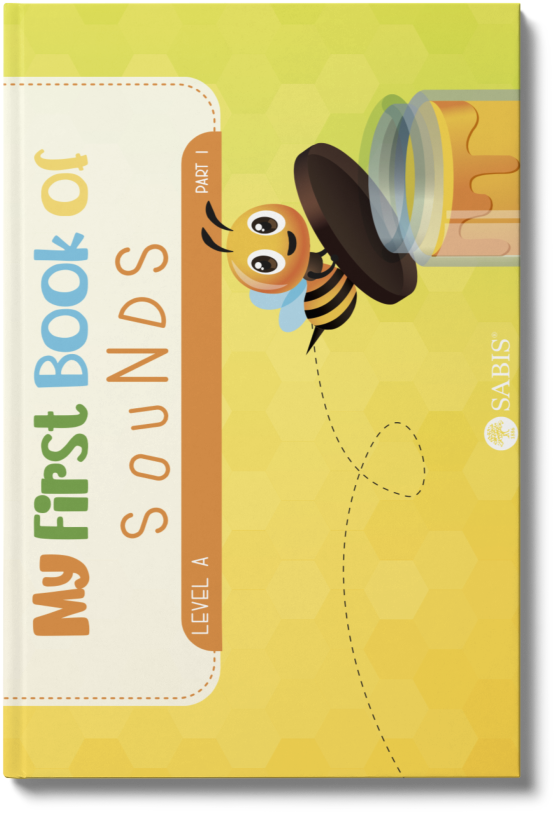 English My First Book of
English My First Book of
Sounds Part 1
Level A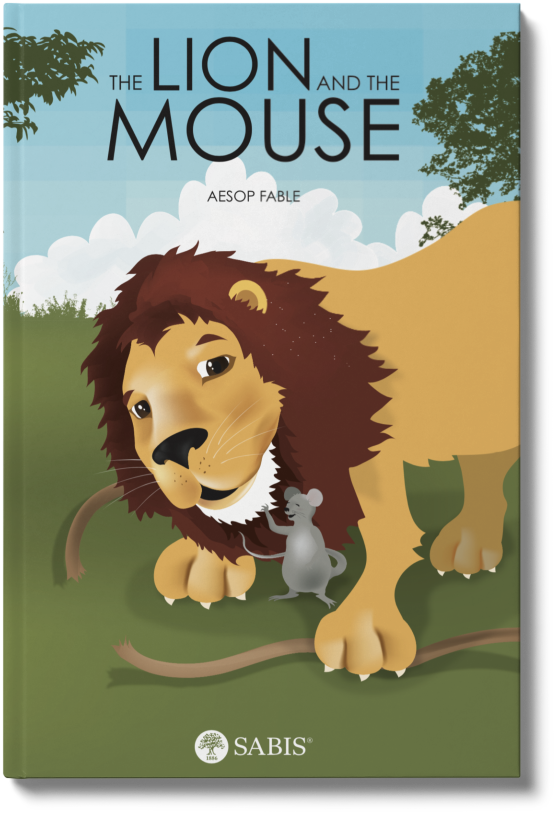 English The Lion and the
English The Lion and the
Mouse - Big Book
(Theme B: Sharing
- Fiction)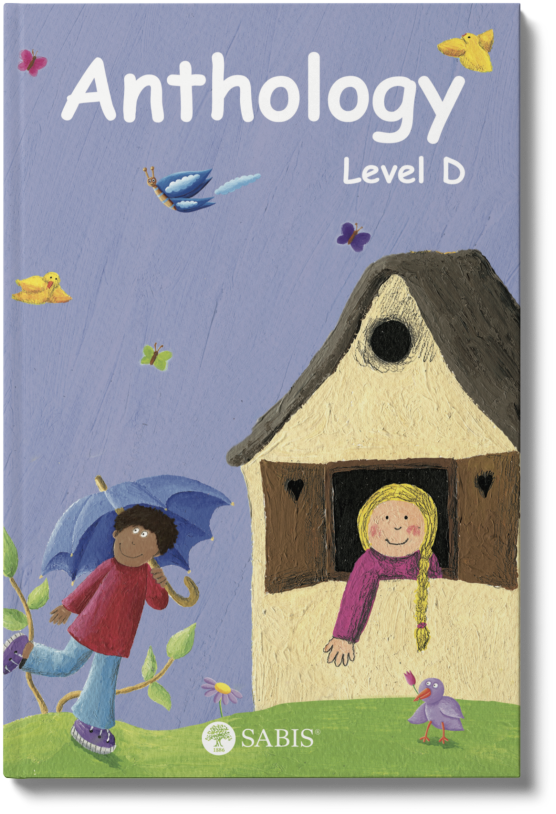 English Anthology Level D
English Anthology Level D
(New Edition)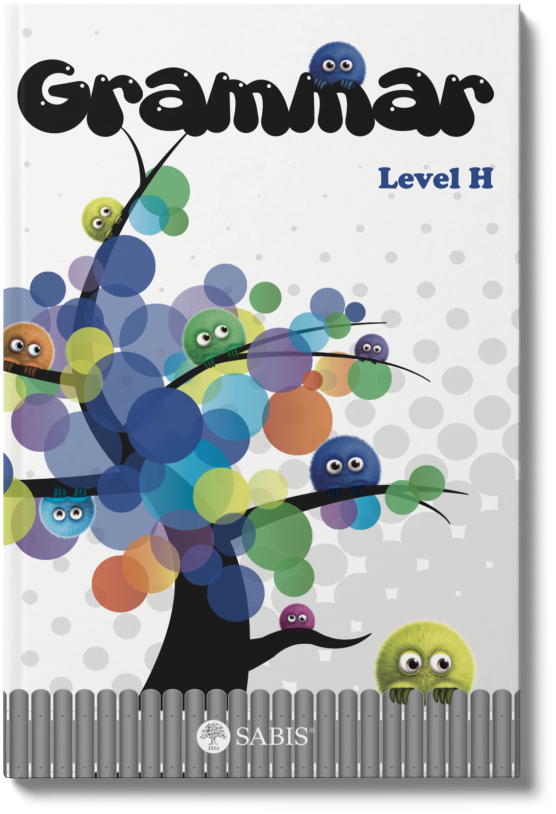 English Grammar Level H
English Grammar Level H English Hannibal
English Hannibal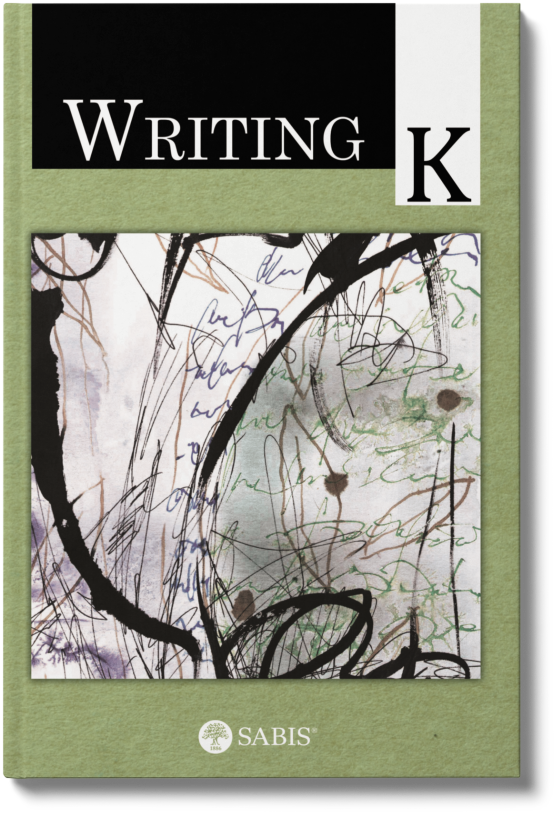 English Writing K
English Writing K
(International
Edition)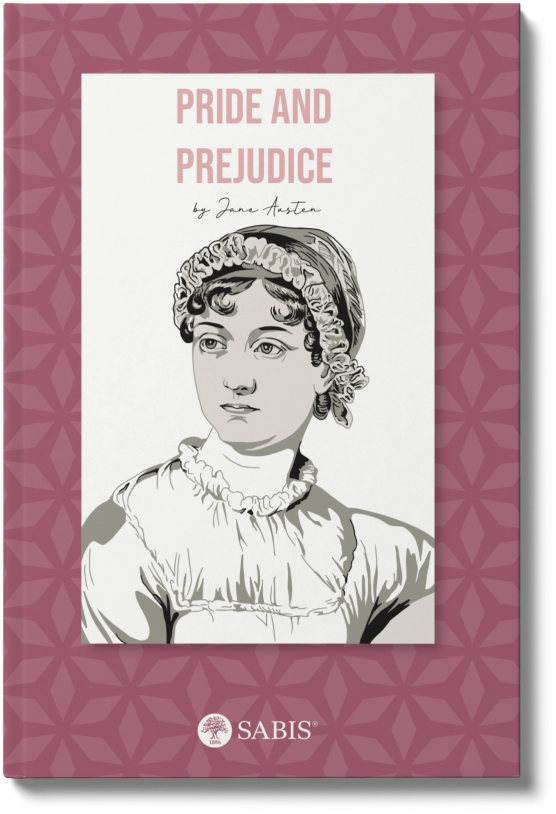 English Pride and
English Pride and
Prejudice Curriculum By Grade Level
Kindergarten
The SABIS® English program in Kindergarten aims to ensure students demonstrate an understanding of the basic features of print, develop phonological awareness, blend sounds and decode words, and read emergent texts with fluency and understanding. The program also aims to develop confident learners who can express their needs and communicate effectively with their teachers and peers.
Students in Kindergarten will be able to:
Identify and say initial and final letters and one-letter sounds
Sound out the initial, medial vowel, r-controlled vowels, and initial and final consonant blends in CVC, CCVC, and CVCC words
Recognize and name all lowercase and uppercase letters of the alphabet
Trace dotted lines and curves from to bottom, left to right
Trace and write lowercase and uppercase letters, words, phrases, and sentences from left to right, including sight words and words related to phonics sounds
Read words, phrases, and sentences from left to right, top to bottom, and page by page with fluency and expression
Read emergent texts using illustration clues, phonics sounds, and knowledge of high-frequency words
Demonstrate an understanding of the world around them by identifying items and words related to various topics
Express themselves and listen to what others have to say
Develop clear, fluent, and legible handwriting
Sub-Courses:
- Phonics
- Reading
- Vocabulary & Language
- Spelling
- Writing
Grade 1
The aim of the SABIS® English program in Grade 1 is to ensure students read and write independently and communicate verbally with the teacher and those around them with confidence and understanding.
Students in Grade 1 will be able to:
Sound out the inital, medial vowels, r-controlled vowels, long vowels, diagraphs, diphthongs, and initial and final consonant blends in words.
Sound out and decode words
Decode and spell phonetic and high-frequency sight words
Read words, phrases, and sentences from left to right, top to bottom, and page by page with fluency and expression
Fluently read simple texts using illustration clues, phonics sounds, knowledge of high-frequency words, and basic punctuation rules
Speak confidently and listen to what others have to say
Trace and write lowercase and uppercase letters, words, phrases, and sentences from left to right, including sight words and words related to phonic sounds
Develop clear, fluent, and legible handwriting
Write for a range of purposes and audiences
Sub-Courses:
- Phonics
- Reading Comprehension
- Handwriting
- Spelling
- Language/Grammar
- Writing
- Vocabulary
- Oral Reading
Grade 2
The aim of the SABIS® English program in Grade 2 is to ensure students read and write independently and communicate verbally and in writing with the teacher and those around them with confidence, understanding, and precision.
Students in Grade 2 will be able to:
Sound out the initial, medial vowels, r-controlled vowels, long vowels, diagraphs, diphthongs, and initial and final consonant blends in words
Sound out, decode, and spell phonetic and high-frequency sight words
Read words, phrases, sentences, and literary and informational passages from left to right, top to bottom, and page by page with fluency and expression
Fluently read grade-level literary and informational texts using illustration clues, understanding of the sound system, knowledge of high-frequency words, and punctuation rules
Fluently read simple texts using illustration clues, phonics sounds, knowledge of high-frequency words, and basic punctuation rules
Speak confidently and listen to what others have to say
Construct cohesive and well-structured paragraphs and essays for a range of purposes and audiences
Write in cursive lowercase and uppercase letters, words, phrases, sentences, and passages from left to right, including sight words and words related to phonic sounds
Develop clear, fluent, and legible handwriting
Sub-Courses:
- Phonics
- Reading Comprehension
- Handwriting
- Spelling
- Language/Grammar
- Writing
- Vocabulary
- Oral Reading
Grade 3, Grade 4, and Grade 5
The aim of the SABIS® English program in Grade 3 is to build on the early-years program to ensure students become confident and enthusiastic readers, develop the speaking and listening skills of an effective communicator, and acquire the tools to write effectively and use language to express ideas and to communicate across the whole curriculum. Through reading of a range of texts, students are encouraged to become reflective readers who respond to layers of meaning and appreciate a wide range of authors and genres. At this stage, opportunities are provided for students to become independent learners through homework tasks and independent projects.
Students in Grade 3, Grade 4, and Grade 5 will be able to:
Read with confidence, fluency, and understanding of a wide range of texts as a source of information, interest, and pleasure
Develop an interest in words and their meanings and a growing spoken and written vocabulary
Build a suitable technical vocabulary through which to interpret text and apply it to writing
Write with accuracy and meaning for a range of purposes and audiences, both in narrative and non-fiction styles, to express their ideas and opinions, narrate texts and events, and present information
Plan, draft, revise, and edit their own writing
Organize the content of their writing and use spelling, punctuation, and syntax accurately
Use correctly formed, legible, cursive, or joined-script handwriting
Sub-Courses:
- Grammar
- Spelling
- Handwriting
- Reading Comprehension
- Vocabulary
- Writing
- Oral Reading
Grade 6, Grade 7, and Grade 8
The aim of SABIS® English in Grades 6, 7, and 8 is to expose students to various genres of literature, ensuring students become confident readers and writers who use the critical thinking skills of effective communicators as they read, write, and interpret texts. As they read and write, students are encouraged to respond to layers of meaning and appreciate a wide range of authors and genres, becoming more aware of the techniques of writing for effect within each of those genres. At this stage, opportunities are provided for students to become independent leaners through homework tasks and independent projects.
Students in Grade 6, Grade 7, and Grade 8 will be able to:
Read with confidence, fluency, and understanding a wide range of longer texts, including chapters books, poetry, essays, and short stories, as a source of information, interest, and pleasure
Participate and lead classroom discussions
Read and analyze texts by using a variety of reading comprehension and literary skills
Enhance their analysis of texts by determining the meaning of words in context and identifying and analyzing the mood, tone, and theme in literary and non-literary texts
Write with accuracy and meaning for a range of purposes and audiences, both in narrative and non-fiction styles, to present and support arguments, provide and analyze information, and narrate texts, including realistic fiction, biographies, and autobiographies
Plan, draft, revise, and edit their writing
Organize the content of their writing and use spelling, punctuation, and syntax accurately
Sub-Courses:
- Grammar
- Reading Comprehension
- Vocabulary
- Writing
Grade 9
English
myPerspectives: With the integration of reading, writing, speaking, listening, and language activities in grade 9, students analyze texts through the eyes of a reader and writer.
The course will feature:
Literary analysis of a variety of genres (selections include Rules of the Game from Joy Luck Club, Night, Life of Pi, The Fall of the House of Usher, and Immigrant Picnic to name a few)
Continued reading comprehension skills
Composition skills - expanding knowledge of the writing process, focus on writing strong essays while maintaining basic paragraph format, and research paper writing skills
Review of grammar skills
Vocabulary acquisition
Supplemental reading
Descriptive and narrative writing
AMS testing
Grade 10
English
myPerspectives provides opportunities for students to practice for high-stakes assessments by incorporating relevant, diverse, and engaging multi-genre texts into the program. Students are engaged in activities to develop critical reading, writing, and analysis skills through each text.
The course will feature:
Literary analysis of a variety of genres (selections include but are no limited to the Bill of Rights, Preamble to the Constitution, The Poetry of Emily Dickinson, The Writing of Walt Whitman, The Doll's House, and To Kill a Mockingbird)
Continued reading comprehension skills
Composition skills - expanding knowledge of the writing process, focus on writing strong essays while maintaining basic paragraph format, and research paper writing skills
Review of grammer skills
Vocabulary acquisition
Supplemental reading
Descriptive and narrative writing
Grade 11
English: American Literature
myPerspectives approaches American Literature from Native American myths to contemporary short stories, poetry, drama, and novels. Selections include the U.S. Constitution, Farewell to Manzanar, The Gettysburg Address, and Walden. Students learn how literature is a product of history and the world around us. With each selection, students are engaged in activities to develop reading, writing, and analysis skills:
Students learn ways to tackle vocabulary in complex texts.
Students discover the multiple uses of words, words in families, and similar meaning words.
Students learn how authors choose words for traits/attributes, emotions, movement, and communication.
Students are exposed to numerous topics and the vocabulary associated with those topics.
Students discover the relationships among concepts of critical topics.
Supplemental reading
Descriptive and narrative writing
Throughout the year, students integrate the knowledge they acquire to apply critical thinking skills. They hone their skills to cite evidence and use cogent writing skills to respond to complex multi-step writing in addition to speaking and listening tasks. Students also begin to develop their College Admissions Essay.
Grade 11 AP®
English Language & Composition
The design of this course cultivates the reading and writing skills that students need for college success and for intellectually responsible civic engagement. The reading and writing students do in the course will deepen and expand their understanding of how written language functions rhetorically. Students will prepare for the Advanced Placement English Language and Composition Exam. Students who score a 3, 4, or 5 on the College Board exam may receive advanced academic credit for college.
The four main goals of the AP® English Language and Composition course are as follows:
1. Students will be able to answer questions that demonstrate an ability to read a text closely and:
a. Discern vocabulary
b. Understand purpose
c. Define Tone
d. Infer Meaning
2. Analysis of non-fiction prose
3. Use own evidence to write an argument
4. Use the research of others to write an essay
Prerequisite: Successful completion of Grade 10 English with an average >= 85.
Grade 12
English: British and World Literature
myPerspectives British and World Literature further strenghtens students' English foundation as they prepare for success in college and beyond. With each selection, students are engaged in activities to develop reading, writing, and analysis skills:
Literary analysis of various genres includes but is not limited to: The Prologue of the Canterbury Tales, Beowulf Graphic Novel, The Charge of the Light Brigade, Gulliver's Travels, and Frankenstein.
Students focus on writing college essays and research paper development skills.
Students hone their skills utilized to tackle vocabulary in complex texts.
Students analyze authors' choice of words for traits/attributes, emotions, movement, and communication.
Students build their repertoire of college-level academic vocabulary.
Supplemental reading
Students analyze the relationships among critical topics throughout many forms of literature.
Grade 12 AP®
Literature & Composition
AP® Literature prepares students for the Advanced Placement® English Literature and Composition Exam. Students who score a 3, 4, or 5 on this College Board exam may receive advanced academic credit for college. Students will undertake a close study of various genres, including:
A chronological approach to English literature from Old English beginnings to the present
How history relates to multiple philosophies and literary movements which have arisen over time. The selected topics include but are not limited to: Beowulf; Shakespeare's Hamlet; the satiric eighteenth-century literature of Swift and Pope; the romantic poetry of Wordsworth and Keats; the Victorian Age of Dickens and Bronte; and contemporary works by authors such as Achebe and Vonnegut
The reinforcement of fundamentals of essay writing and some creative writing that allows students to respond personally to the literature
Prerequisite: Successful completion of Grade 11 American Literature with an average >= 85% or, successful completion of AP® Language and Composition. 





